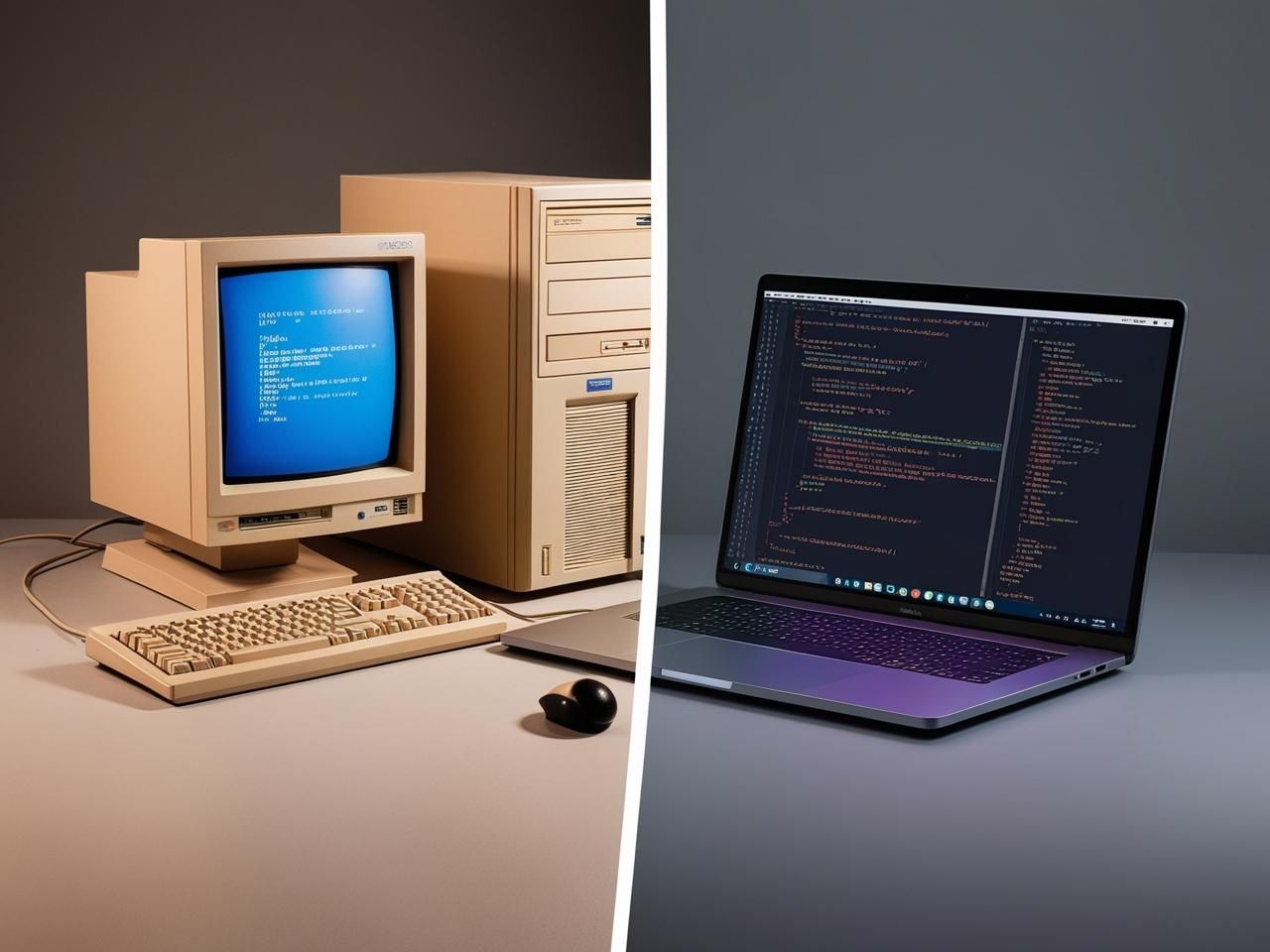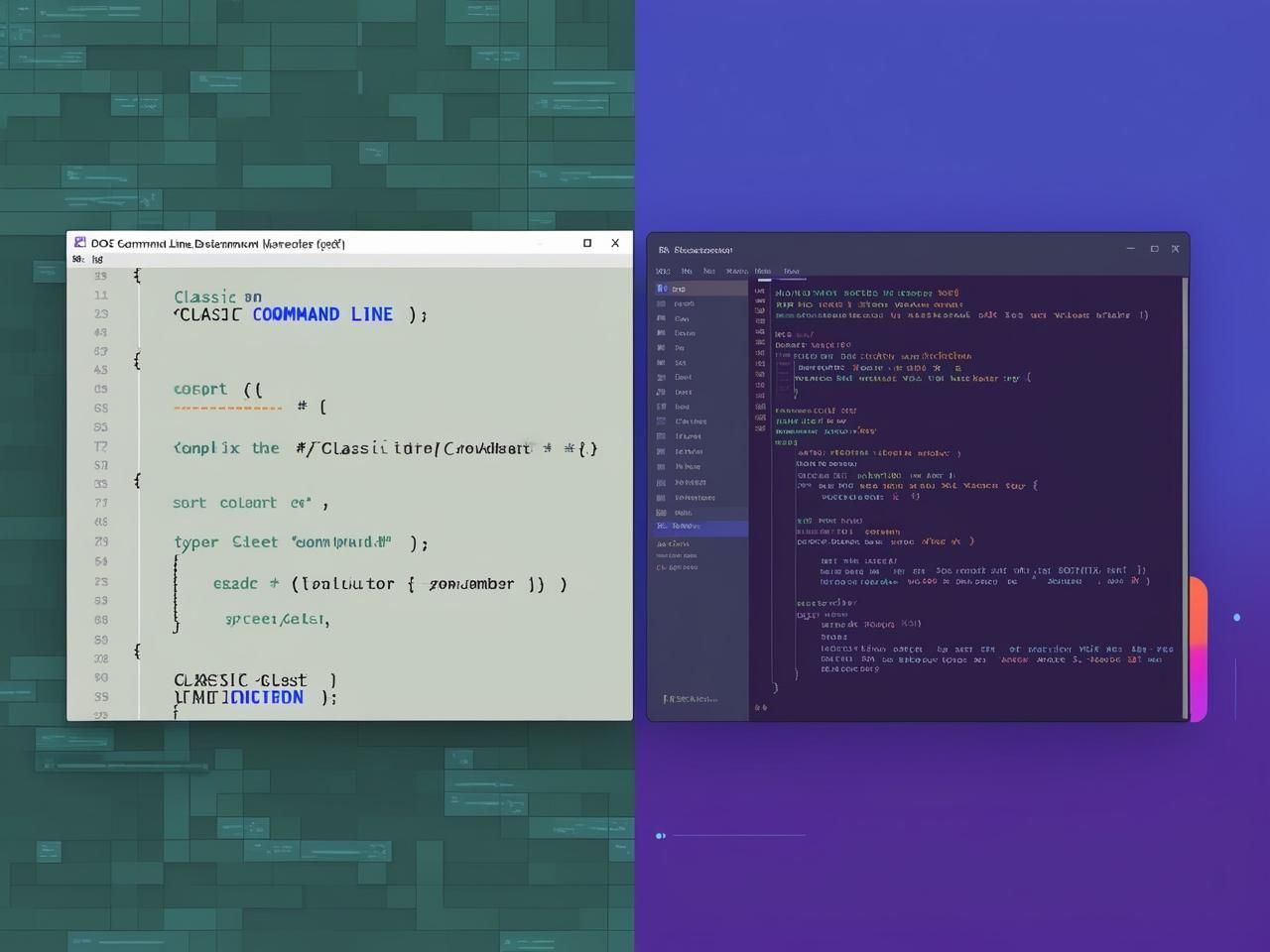- English
- Indonesia
Published by I Putu Arka Suryawan at Tue May 27 2025

How a veteran developer bridges the gap between classic programming foundations and cutting-edge AI innovations
When I first started coding in the early 2000s with Clipper for DOS applications, I never imagined I'd one day be mentoring young developers who've never seen a command prompt, let alone written code without an IDE. Yet here I am, nearly two decades later, finding myself in the unique position of bridging two very different technological worlds.
My career began in an era where every line of code mattered, where memory was precious, and where understanding the fundamentals wasn't optional—it was survival. Those early days working with DOS applications taught me something invaluable: the importance of understanding what happens beneath the surface.
Today's young developers often start with React, Python, or JavaScript frameworks. They build impressive applications without ever worrying about memory management or understanding how their code actually executes. While this accessibility is wonderful—it's democratized programming in ways we never thought possible—it sometimes creates gaps in foundational understanding.
Despite the dramatic technological shifts I've witnessed, certain principles remain constant. These timeless concepts form the backbone of effective mentoring:
Problem-Solving Over Tool Mastery When I mentor young developers, I emphasize that frameworks come and go, but problem-solving skills are eternal. Whether you're debugging a Clipper database query or optimizing a machine learning model, the analytical thinking process remains remarkably similar.
Understanding Before Implementing In the DOS era, you had to understand your environment completely. Today, I encourage mentees to maintain that curiosity. Don't just use an API—understand what it does. Don't just copy code from Stack Overflow—understand why it works.
The Art of Simple Solutions Resource constraints in early computing taught me that elegant solutions are often the simplest ones. I share this wisdom with developers who sometimes overcomplicate problems that could be solved with cleaner, more straightforward approaches.

One of the most rewarding aspects of mentoring is watching the "aha" moments when young developers connect modern concepts with fundamental principles. I've found that my diverse background—from DOS applications to AI systems—gives me a unique perspective that resonates with different learning styles.
Meeting Them Where They Are I don't expect today's developers to appreciate the elegance of command-line tools immediately. Instead, I show them how the principles I learned in simpler environments apply to their preferred technologies. We might discuss API design patterns while building a React application, or explore data structures through Python rather than C.
Sharing War Stories with Purpose Young developers love hearing about the "old days," but I'm careful to share stories that teach rather than just entertain. When I talk about debugging without modern tools, it's to emphasize the importance of systematic thinking. When I describe the satisfaction of optimizing code for limited resources, it's to encourage efficiency even in resource-abundant environments.
My approach to mentoring has evolved to embrace modern learning preferences while maintaining focus on fundamental principles:
Interactive Learning Through Real Projects Rather than theoretical discussions, I guide mentees through actual projects that demonstrate principles in action. We might build a small AI application that requires understanding both data flow and system architecture—concepts that are as relevant today as they were in the DOS era.
Code Reviews as Teaching Moments Every code review becomes an opportunity to discuss not just what works, but why it works and how it could be improved. I encourage questions about performance, maintainability, and scalability—topics that were critical in resource-constrained environments and remain important today.
Encouraging Exploration Beyond Comfort Zones I challenge mentees to occasionally step outside their preferred technology stack. A JavaScript developer might benefit from understanding how Python handles memory management, or how database optimization principles apply regardless of the query language being used.
The most successful mentoring relationships I've built are those where both parties learn. Young developers bring fresh perspectives on modern tools and approaches, while I contribute historical context and foundational wisdom. This exchange creates stronger, more well-rounded technologists.
Fostering Continuous Learning I emphasize that technology careers are marathons, not sprints. The frameworks popular today will eventually be replaced, just as Clipper gave way to web technologies, which evolved into cloud computing, which now incorporates AI. The key is maintaining curiosity and adaptability.
Encouraging Teaching Others I always encourage my mentees to start teaching others, even while they're still learning. Some of my most profound insights have come from explaining concepts to others. Teaching forces you to truly understand what you think you know.
Building Resilient Problem-Solvers Perhaps most importantly, I focus on developing resilience. In the DOS era, when something broke, you had to figure it out yourself—there was no Stack Overflow, no GitHub Issues, no community forums. While I'm grateful these resources exist today, I encourage developers to first attempt solutions independently before seeking help.
The technology industry needs developers who can adapt, think critically, and build upon solid foundations. By combining the wisdom gained from decades of technological evolution with enthusiasm for emerging innovations, we can mentor the next generation to be not just proficient coders, but thoughtful technology leaders.
As I continue to work with AI systems and mentor young developers, I'm reminded daily that the most valuable skill isn't mastering any particular technology—it's the ability to learn, adapt, and apply fundamental principles to new challenges. That's a lesson as relevant today as it was when I first typed my first line of Clipper code all those years ago.